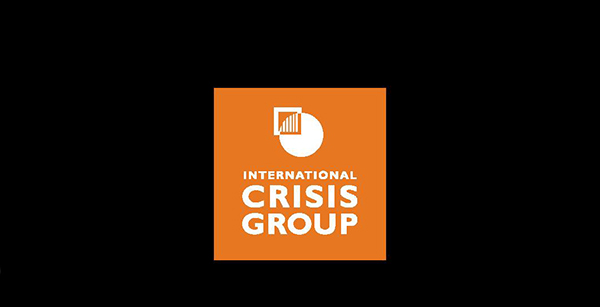
International Crisis Group: Sudan Must Be Prevented from Slipping into a Point of No Return
moatinoon
A prominent international research institution has anticipated that the brutal war in Sudan will take an even more horrifying turn unless countries and influential powers in Africa and the world, possessing the greatest influence on the parties involved and weight in the region, take coordinated action to prevent further deterioration in Sudan. The international community needs to work together to alleviate the suffering of the Sudanese people.
In its latest report on Sudan released on Tuesday, the International Crisis Group called for "significant, coordinated, and high-level diplomatic efforts involving external powers with the greatest influence in the region." The report noted that current diplomatic efforts are fragmented and unsuccessful.
The group warned that the Sudanese people are experiencing shock due to the rapid regression of the army, the return of the Bashir regime, tightening its grip on the remaining state bureaucracy controlled by the military, and the leadership of a mobilization campaign to form militias to fight alongside and within the army. This has led to other groups across the country gearing up for an arms race, preparing for a long war.
It is unlikely that the countries bordering the Red Sea (Egypt, Saudi Arabia, and Eritrea) would accept the expansion of the Rapid Support Forces to the east, as they would see it as a threat to destabilize their countries. This could prompt them to establish buffer zones by arming proxy militias or even deploying across borders, similar to what happened in Somalia. If one neighbor moves in this direction, a series of other neighbors might follow suit to secure their interests.
The paper highlighted the problems faced by the mediation parties, contributing to a lack of breakthrough and an agreement to cease hostilities. These include the inability to push influential parties to the conflict in Sudan to sign a peace agreement, internal disputes within the Intergovernmental Authority on Development (IGAD) regarding Sudan, and what the research organization described as the "unclear relationship" between the army and the Sudanese Ministry of Foreign Affairs, questioning whether the latters positions are "coordinated with Burhan." However, the paper also pointed out that there are "other indications" suggesting that "the army may also distance itself from the IGAD process."
The research group explained that one of the obstacles to progress in Sudan is what it termed "structural challenges" within the U.S. State Department regarding the Sudan file. This has created a gap in dealing with all influential parties in the region, which can only be overcome by appointing a senior envoy "with sufficient stature to rise above the ongoing battles in Washington and mobilize efforts to stop the war." However, the department rejects this step.
The group believes that this situation is likely to place a heavy burden on the leadership of the State Department, and perhaps Secretary of State Antony Blinken himself, to take control of the situation. His personal presence in any initial meeting between Burhan and Hameti would be welcome. At the same time, it emphasized that the minister should assign a senior diplomat actively engaged in the Sudan file to enable shuttle diplomacy with major Arab capitals, balancing between African and Arab players.
The group sees that although Sudan is on the brink of the abyss, the warring parties still have a reason to stop the war if pressure is applied in the right direction. It emphasized that cessation of hostilities is not easy, and if achieved, it will be just the beginning of a challenging and lengthy project—reunifying Sudan under one government and creating conditions that allow displaced Sudanese to return home. However, these difficulties do not diminish its importance, stating that the "broader peace process" will only gain momentum after the fighting stops. The regional leaders, Washington, and other partners must seize the right moment before Sudan reaches a point of no return, leaving a failed state that may take decades to repair.

